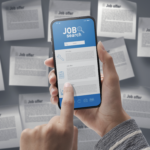Workplaces cannot keep giving more employee benefits – and individuals cannot keep giving more of themselves to work. Mental health has been classified as the ‘second pandemic’ by Mind, the mental health charity. As a result of this looming crisis, workplaces now feel increasingly pressured to support colleagues. But with a 175% increase in demand for mental health services generally, there is a growing demand for support which cannot be met.
As anyone who’s tried to access state-funded mental health services can attest, waiting times are long or, worse still, help is often non-existent or comes in the form of a pharmaceutical treatment.
More recent research using 338 systematic reviews demonstrated that depression and anxiety are still consistently higher now than pre-pandemic. Additionally, research from UCL demonstrated how, for the over-50s, this has worsened significantly in the last few years.
Essentially, the weight of responsibility around the wellbeing and mental health of employees has increased steadily for organisations and HR managers. The pressure to provide solutions has surged dramatically without any transparent and strategic research-driven information around how to effect those solutions.
We have increased numbers of people struggling and we also have increased numbers of people feeling overwhelmed. In his book Four Thousand Weeks, Oliver Burkman describes how, despite the many time management and productivity tools we have at our fingertips, people still struggle to cope with the demands of everyday life. Constantly online, we’re bombarded with information on how we should be living and how to get more done.
The ‘grind culture’ of relentless 12-hour work days is celebrated by TikTok entrepreneurs and many of us wake up every day and our first thought is how we’ll find the time to get everything done. Burkeman asks us to stop considering that we are in control of time, and instead empowers the reader to give up on something that was never possible: getting everything done. Indeed, he argues, the drive to constantly achieve more is counterproductive.
Hybrid working – initially seen as a solution to presenteeism and long-hours work culture – has also resulted in many employees feeling tied to their computers. Research by Bolisani et al (2021) describes this as technostress.
To address these staff challenges, organisations and HR teams have felt the need to ‘give’ things to individuals in order to help – from subsidised gym memberships to free fruit and team-bonding events. Others might also offer some mental Health First Aid Training (MHFA) or run workshops on managing time. However, these are often accessed by individuals who are already engaged with their health, the ‘worried well’.
The ‘hard to reach’ employees are hard to reach for a reason. They do not want to engage. Indeed, for many the thought of addressing personal wellness is so far down on their list of challenges that they cannot even consider it. Mental health issues, family conflict, caring responsibilities, addiction problems and more take precedence in their thoughts and actions.
Thankfully, reaching those less connected employees is, in theory, becoming easier as the cost benefit arguments in relation to workplace mental health are becoming less divisive. We know we need to support people and increasingly have the budget to do so. But how best to help build that mental resilience?
A key point to consider here is that the human resources department is not ‘the resource’. Organisations cannot provide people with better mental health. Individuals need to do the work and engage with the pathway towards thriving, rather than surviving. What organisations do have is a big chunk of employees’ time every week. Time that could be used not just for their day-to-day job role, but as an opportunity to enhance their mental health. So, while organisations cannot directly fix their employees’ challenges, they can facilitate by providing space, time and resources to help their people help themselves.
The problem is that most workplace stress solutions focus on work/life balance, which is a reductionist and divisive approach. In truth, work/life balance is a fallacy. It’s more useful to consider the reciprocal nature of work and life and look at how work can enhance life – and life can enhance work.
One of the most troublesome aspects of the work/life balance approach stems from the basic concept that work demands are negative and that home demands are positive. This is incorrect, as demands can be either positive or negative from work or home.
As mentioned previously, workplaces too often consider employee benefits as the answer. But these are just ‘things’ which are adding to an individual’s overall list of rarely effective solutions to a deeper problem. In some cases, they can even add to an employee’s already overstretched cognitive load.
All of this ignores the critical and central issue pertaining to stress, which is that it often stems from a lack of personal resources. Research by Grawitch et al (2010) explored this and proposed a ‘personal resource allocation model’ as a solution to workplace stress.
This model has been underused in the workplace health field to date and should be considered in more depth. It focuses on an integrative approach to work and life. We only have a finite amount of resources to cope every day, week and month, so use that as our starting point.
Take for example the concept of an appraisal – a six monthly check of goals achieved. Grawitch suggests using a personal resource check instead. What’s coming up in life and work? What do you need to support you in your job?
“Positive outcomes are achieved when people (1) perceive themselves to have the resources necessary to effectively respond to the demands in their life, (2) believe they have sufficient control to allocate resources in a way that fits their preferences, and (3) feel satisfied with the way they have managed their resources” (2).”
A healthy work culture emerges when the belief is not that people don’t want to go to work. It emerges when people have some autonomy over how when and where they allocate their resources. This is a critical step in enabling people to manage stress and build resilience.
“When people effectively respond to their life demands, they tend to produce a greater quality of results, which is the hallmark of effective self-regulation” (2)
Instead of focusing on this work/life divide, let us instead think about the synergistic phenomenon of ‘facilitation’. Experiences in one domain (space) can produce energy that we use in other domains. Our experiences at home can positively influence work and vice versa. In short, there’s no one-size-fits all solution to building employee mental resilience and only by taking a bespoke approach to every person – and considering all the demands they may have on themselves – can we hope to achieve a happier, healthier workplace.









